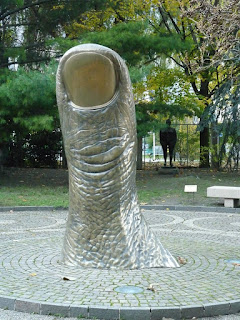A skeleton in the cupboard is an embarrassing fact that someone wants to keep secret.
Examples:
“Now, almost like a skeleton in the cupboard, workmen are bringing to light a reminder of the tram days.”
“We all have a skeleton in the cupboard. In my case, it was publicised to the world and that wasn’t really fair, I don’t think.”
The US version of this idiom is “a skeleton in the closet.”
e.g. “Countless films and TV shows present a group of friends or family who are rattled by the airing of a long-held grievance, or the sudden announcement of a skeleton in the closet.”
An origin for this idiom is offered in Brewer’s Dictionary of Phrase and Fable [1], which tells the story of a search for someone who had no problems. Eventually a lady was found who seemed to fulfil this criterion; however, she then took her interviewers upstairs and opened a cupboard containing a human skeleton, which was that of her husband’s rival, killed in a duel. She explained that every night, her husband made her kiss this skeleton.
Photo credit: Jean-Christophe THEIL (Creative Commons)
[1] “Skeleton” In Brewer’s Dictionary of Phrase and Fable, edited by Susie Dent. 19th ed. Chambers Harrap, 2012.
I blog about editing, proofreading, and the English language.
Comments and suggestions are welcome.
Many of the phrasal verbs and idioms addressed in this blog were highlighted during an English conversation class I ran a few years ago. I’m grateful to those who attended this for helping me see my native language from a different perspective.
Most of the examples used are quotes from news articles. Click on the links (in yellow) to view the full article.
Wednesday, 30 October 2019
Tuesday, 29 October 2019
QUID PRO QUO
The phrase “quid pro quo” is a Latin term that translates literally as “something for something.” It is used to describe a favour or advantage given in return for something. It is used as both a noun and an adjective.
Examples:
“First, a professor might theoretically ask a student-athlete to lose a game on purpose as part of a quid pro quo.”
“This also applies to a quid pro quo situation in which an individual uses the power of their position within an organization to benefit them personally.”
“A swipe of the Clubcard entitled customers to special offers and discounts. But there was a quid-pro-quo: the supermarket learned exactly what its customers were up to.”
Photo credit: Mathew Sanders (Creative Commons)
Examples:
“First, a professor might theoretically ask a student-athlete to lose a game on purpose as part of a quid pro quo.”
“This also applies to a quid pro quo situation in which an individual uses the power of their position within an organization to benefit them personally.”
“A swipe of the Clubcard entitled customers to special offers and discounts. But there was a quid-pro-quo: the supermarket learned exactly what its customers were up to.”
Photo credit: Mathew Sanders (Creative Commons)
Monday, 28 October 2019
WHAT IS A GROCERS’ APOSTROPHE?
A grocers’ apostrophe is an apostrophe that is misapplied to a plural. This error is frequently seen in grocers’ shops, hence the name; however, to be fair, it is seen in many other places.
Examples:
“First thing’s first: nobody does a collaboration quite like ASOS.”
“In the video, the singer can be seen holding a bunch of banana’s.”
“We have to get the window’s boarded up”
(All these apostrophes are used incorrectly - apostrophes should not be used for plurals.)
Photo credit: Miria Grunick (Creative Commons)
Examples:
“First thing’s first: nobody does a collaboration quite like ASOS.”
“In the video, the singer can be seen holding a bunch of banana’s.”
“We have to get the window’s boarded up”
(All these apostrophes are used incorrectly - apostrophes should not be used for plurals.)
Photo credit: Miria Grunick (Creative Commons)
Tuesday, 8 October 2019
RULE OF THUMB
A rule of thumb is a rule or principle based on experience rather than theory or precise calculations.
Examples:
“As a rule of thumb, give your plants a little water every other day.”
“A depreciation of 10% or more in the value of the pound is likely—which, according to a rule of thumb, would increase prices by 2–3%.”
“As a rule of thumb, thicker fabrics last longer than thinner ones.”
This idiom was first recorded in 1692 and probably originates from the use of parts of the body as units of measurement. As the first joint of an adult’s thumb is about an inch long, it could be used to make rough measurements [1].
Photo credit: Romain Guilloux (Creative Commons)
[1] Cresswell, Julia. “rule” in The Oxford Dictionary of Word Origins. Oxford University Press, 2009.
Examples:
“As a rule of thumb, give your plants a little water every other day.”
“A depreciation of 10% or more in the value of the pound is likely—which, according to a rule of thumb, would increase prices by 2–3%.”
“As a rule of thumb, thicker fabrics last longer than thinner ones.”
This idiom was first recorded in 1692 and probably originates from the use of parts of the body as units of measurement. As the first joint of an adult’s thumb is about an inch long, it could be used to make rough measurements [1].
Photo credit: Romain Guilloux (Creative Commons)
[1] Cresswell, Julia. “rule” in The Oxford Dictionary of Word Origins. Oxford University Press, 2009.
Monday, 7 October 2019
HOW TO USE “ALREADY”
As an adverb, “already” is used in to show that:
(1) something is currently happening;
(2) something was finished before something else happened;
(3) something was completed earlier than expected.
Examples:
(1)
“We already work a 32-hour week on average (pretty much a four-day week); it’s just that it’s predominantly women who work part-time.”
When using the simple present tense, as above, “already” is normally placed before the verb.
This article discusses the possibility of a shorter working week; “already” is used here to indicate that, on average, people do work a shorter working work than the 40 hours that is classed as full-time work. In other words, the shorter working week in question is currently happening.
“Upland farming is already delivering a plethora of ‘public goods’ but the expertise to manage the land will be lost without long-term public funding, a new report warns.”
Here, the present continuous tense is used, and “already” is placed between the present tense of the verb “to be” and the -ing form of the verb.
(2)
“I had already packed the girls’ bags and bought their school uniforms.”
Here, the past perfect tense is used; “already” is placed between “had” and the past tense of the verb “to pack.”
“The members had already voted unanimously to declare a ‘climate emergency’.”
(3)
“A man in his 20s is already working on his Christmas light display - in October.”
“Tesco is closing its Jack’s Supermarkets already”
Here, “already” is placed at the end of the sentence. It would also be correct to place it before “closing.”
Photo credit: Steven Feather (Creative Commons)
(1) something is currently happening;
(2) something was finished before something else happened;
(3) something was completed earlier than expected.
Examples:
(1)
“We already work a 32-hour week on average (pretty much a four-day week); it’s just that it’s predominantly women who work part-time.”
When using the simple present tense, as above, “already” is normally placed before the verb.
This article discusses the possibility of a shorter working week; “already” is used here to indicate that, on average, people do work a shorter working work than the 40 hours that is classed as full-time work. In other words, the shorter working week in question is currently happening.
“Upland farming is already delivering a plethora of ‘public goods’ but the expertise to manage the land will be lost without long-term public funding, a new report warns.”
Here, the present continuous tense is used, and “already” is placed between the present tense of the verb “to be” and the -ing form of the verb.
(2)
“I had already packed the girls’ bags and bought their school uniforms.”
Here, the past perfect tense is used; “already” is placed between “had” and the past tense of the verb “to pack.”
“The members had already voted unanimously to declare a ‘climate emergency’.”
(3)
“A man in his 20s is already working on his Christmas light display - in October.”
“Tesco is closing its Jack’s Supermarkets already”
Here, “already” is placed at the end of the sentence. It would also be correct to place it before “closing.”
Photo credit: Steven Feather (Creative Commons)
Subscribe to:
Comments (Atom)




